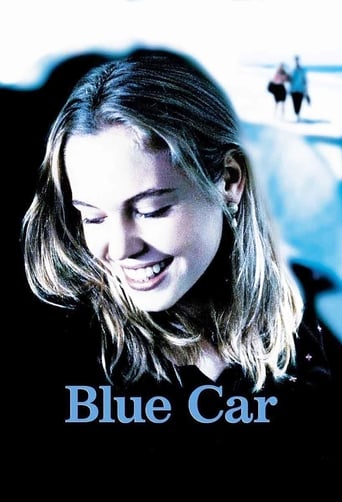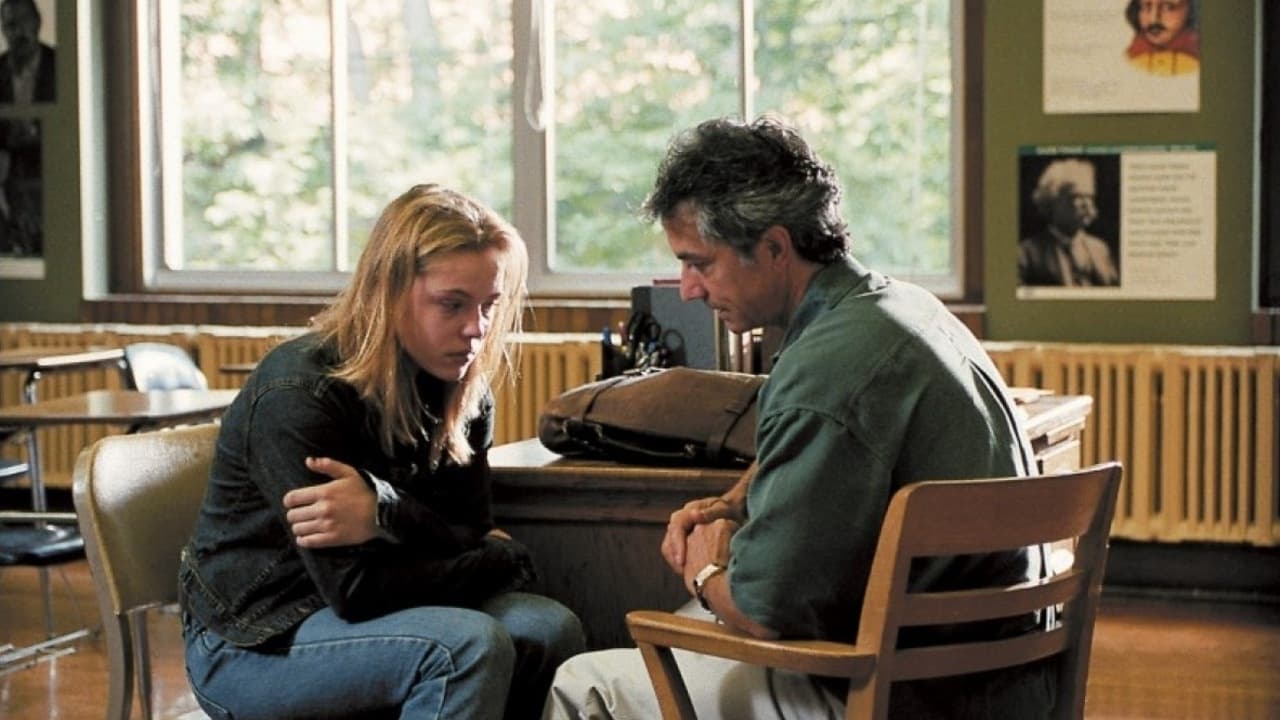dansview
The lead female character is so boring and lacking in vitality. I can understand an old guy being attracted to a vivacious, experienced young lady, but why this one, other than her being an easy mark? If an old guy ever gets a chance to be with her, how would she even know how to roll with it, and satisfy his interests? Answer: she won't.Another reviewer mentioned the lack of decent adults portrayed. But her mom was not so bad, and the owner of the clothing shop was totally decent. The girl was the cynical one in that situation. If you haven't seen it yet, then keep a watch for that.I do think the lead actress's facial expressions and body language were accurate for that type. She did that stuff well. I normally love David Strathairn, but what a bore he was in this one. No emotion. I'm not blaming that on him. It could have been the writers or director. An English teacher should be passionate and animated. This guy was stoic and controlled, like most of David's characters. I guess he was the alienated writer type. That's one way of looking at it.Even in the crucial scenes at the end, he doesn't really let loose and kick a wall or cry. That would have made this film more believable. Although I guess we were supposed to assume he had a history of getting "close" to students. So he had been down this road before perhaps.Scenery and music are not too significant here, although I suppose the background music helped create the somber vibe. But I have no recollection of it, and I just saw it a few minutes ago.So its' impact was subtle.Many small films attempt to show that life is messy and rarely follows the script we write for ourselves. This one did that satisfactorily. The male lead's answer at the end, to the question of how he expected it all to turn out, was more than telling. There's a good line in there about "being transformed." That was his plan.Ultimately, like John Lennon once said, "Life is what happens when you're making other plans." I'd skip this one, unless you feel some connection to the storyline. The relationship is awkward and disturbing, and the usury practiced by various characters will just depress the heck out of you. it's a downer.
MrGKB
...despite its somewhat melodramatic plot line, far, far worse indeed. Writer/director Karen "The Dead Girl" Moncrieff's tyro effort benefits immensely from the impressive acting chops of (then) newcomer Agnes "Blood and Chocolate" Bruckner and the already well developed talents of David "Good Night, and Good Luck" Strathairn. The film's central theme of naive youth overcoming adversity is nothing new, nor are the particulars of broken adults taking advantage of vulnerable, trusting innocence, but the relative delicacy with which Moncrieff handles all the soapy goings-on puts "Blue Car" miles ahead of like-minded indies (cf. "The Good Student"), allowing Bruckner, Strathairn, and the rest of the ensemble something of substance to latch onto and form characters that the viewer actually cares about. "Blue Car" may only be a step or two above mediocre movie-of-the-week fare, but they're still admirably significant steps.To be honest, I'm mostly motivated to comment on this title because it was shot in and around my home town. Interestingly, beyond one bit of dialogue and a (very) few recognizable locations, you'd never know it. The interiors for the "Florida" poetry contest, for instance, were shot in Ohio (as was most of the film), and although specifically placed in that state, "Blue Car" is pretty much an Anywhere, U.S.A. story. It's a character piece, and if not high art, it's still aiming for the sky.Of definite interest to Bruckner or Strathairn fans, as well as a fine bit of foreshadowing to Moncrieff's far superior "The Dead Girl," "Blue Car" is still worth a watch to anyone who enjoys a nicely told story from the heart. Its paucity of budget may be more than visible, but there's no cheapness in its intent. Recommended.
somehope
Blue Car is not as classic as Truffaut's "The 400 Blows", but it may be a distant relative about how a teenager is trapped by circumstances beyond his or her control while growing up. Both use the sea in the films to show their metaphorical entrapment in a world where adults may either not have the time to give a damn, or in Car's case, want to use the child for their own needs. Despite what the DVD/VHS box says, comparing "Blue Car" to "American Beauty," Car is about a woman-child trapped in this world while "American Beauty", showed a man-boy who never really escaped from the pressures and stupidity of the adult world until his death. Spacey's character grew up trapped until his final days.The protagonists in both "400" and "Car" are smart. They worship Balzac and English poetry, respectively. But they can't escape what fate has given them -- the cards are to hard to deal with without a proper guidance figure. So, with the exception of a POSSIBLE happy ending at "Car", they are still intelligent but they are still tortured. They represent us as we start/are starting to realize that as a great muse once sung,freedom is a word for nothing to lose.I wish I had more time to get into the comparison, but see both "The 400 Blows" and "Blue Car" when you can, and I think you'll see what I mean. Younger adults can understand both (although, yes, Car, does go a little over-dramatic sometimes) feelings of non-delinquents youth who do need help more readily than some adults, but the adults, if they want to stop suppressing their memories, know they felt/feel the same way if they are just honest enough to admit it.Watch both. One is a classic, and one an under-appreciated gem.
Michael Atherton
Blue Car is a political film disguised as a character study. It reaffirms our prejudices without clarifying the characters' underlying motivations. (Spoilers) Why are we not surprised at Auster's lack of restraint? Do we assume that any man given the opportunity will use it to full advantage? This is actually the theme of a film made in 1962, Term of Trial, staring Laurence Olivier as the teacher. Term of Trial does not explore the indiscretion, rather it examines our expectation of it. There are thousands of teachers in close proximity of young nubile teens, yet indiscretion is not rampant. You might argue that this is a portrait of just one teacher, but why are we not provided any examination of Auster's motives or character flaws? Auster is not a predator. There is no indication that he has "ruined" other students. Other than helping Meghan gain the opportunity to compete he makes no other arrangements to seduce her, their encounter is by chance. Then what is it that motivates Auster to make the wrong choice? I would suggest that it is not Auster's choice, rather it's the Moncrieff's choice (and Ebert's bias). In the commentary, Moncrieff discusses how uncomfortable the actors felt with the scene and the location. Given what we know about Auster, I believe that he would have felt the same. Realist films should strive for psychological consistency, not moralistic formalism. I love allegories like the Piano, in which the characters are abstractions, but I don't appreciate Realist presentations that provide us with false or underdeveloped characters who simply reinforce our existing prejudices. Not to mention the film's cover photo, which promotes the same type of sexual exploitation we are expected to find abhorrent. If you are interested in Feminist films with complex characters that are more than mere moral contrivances try Lizzie Borden's Love Crimes, but be forewarned that it's more likely to offend your social values than Blue Car.



 AD
AD



